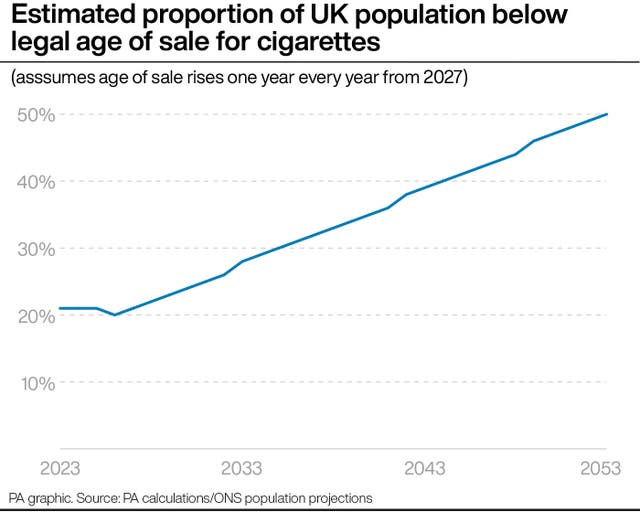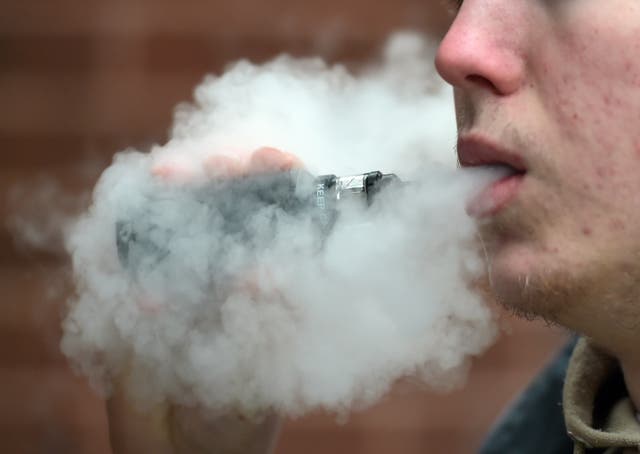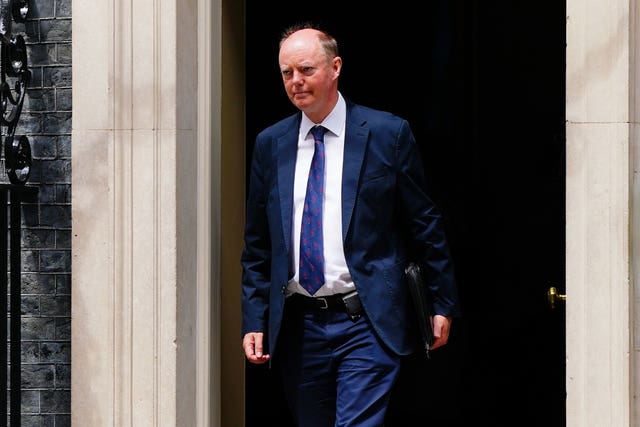Prime Minister Rishi Sunak has described his plan to increase the legal smoking age annually as the “biggest public health intervention in a generation”.
Under the plan announced in his Conservative Party conference speech, the proposed legislation for England will make it an offence for anyone born on or after January 1, 2009 to be sold tobacco products.
This has the potential to phase out smoking in young people almost completely as early as 2040.

Mr Sunak told BBC Radio 4’s Today programme: “Smoking is unequivocally the single biggest preventable cause of death, disability and illness in our society.
“Everyone recognises this measure will be the single biggest intervention in public health in a generation.”
Asked about restricting people’s right to choose, Mr Sunak said there is “no safe level of smoking”.
He was challenged over his decision in the summer to shelve plans to ban two-for-one junk food deals, a key anti-obesity measure, saying at the time he believed in “people’s right to choose”.
Mr Sunak said obesity is not the biggest health crisis facing Britain and “smoking is different to a pack of crisps or a piece of cake”.
Downing Street, which said it expects the plans will mean up to 1.7 million fewer people smoking by 2075, has not specified when a free vote on the crackdown on buying cigarettes will be held, but the Prime Minister’s press secretary said: “Rishi Sunak is a man in a hurry.”
In his speech, the Prime Minister said: “People take up cigarettes when they’re young – four in five smokers have started by the time they’re 20.
“If we are to do the right thing for our kids, we must try and stop teenagers taking up cigarettes in the first place.
“Because without a significant change thousands of children will start smoking in the coming years and have their lives cut short as a result.”
Mr Sunak also said more must be done to “restrict the availability” of vapes to children.

Number 10 said the consultation on vaping will examine restricting the flavours and descriptions of vapes so they are no longer targeted at children; regulating sale displays of vapes; regulating packaging; and restricting the sale of disposable vapes.
Ministers have faced repeated calls to ban the use of disposable vapes to help protect children and reduce the significant environmental impact of the single-use products.
“Disposable vapes are an inherently unsustainable product, meaning an outright ban remains the most effective solution to this problem,” said David Fothergill, chairman of the Local Government Association’s Community Wellbeing Board.
Commenting on Mr Sunak’s announcement, Professor Sir Chris Whitty, England’s chief medical officer, said: “Smoking damages many lives. It causes stillbirths, asthma in children, heart disease, stroke and dementia in addition to causing most lung cancer and increasing risk of many other cancers.
“Becoming addicted to cigarettes in early life is one of the worst things that can happen for future health.
“Preventing people becoming addicted to smoking and helping those who smoke to quit are two of the most important measures we can take to improve health.”

Asked about vaping, Sir Chris said: “Vapes are safer than smoking – that’s not setting a very high bar – but they are safer than smoking.
“We absolutely do not want children to get addicted to nicotine and vaping.
“I’ve said before and I’ll say really clearly now, marketing vapes to children is utterly unacceptable.”
He added that a crackdown on vaping would “allow smokers who are going to be massively damaged by smoking to move on to vaping, which is safer, but make sure that children are not addicted at a young age”.
When asked if vapes are safe, Sir Chris said: “Vapes are not safe but they’re a lot safer than smoking.
“The reason for having vapes at all is because it helps some smokers to get off smoking, and smoking is so dangerous for them that, relative to smoking, this is a considerable improvement.
“But we absolutely do not want anybody who is currently not smoking to be using vapes.”




House Rules
We do not moderate comments, but we expect readers to adhere to certain rules in the interests of open and accountable debate.
Read the rules hereLast Updated:
Report this comment Cancel